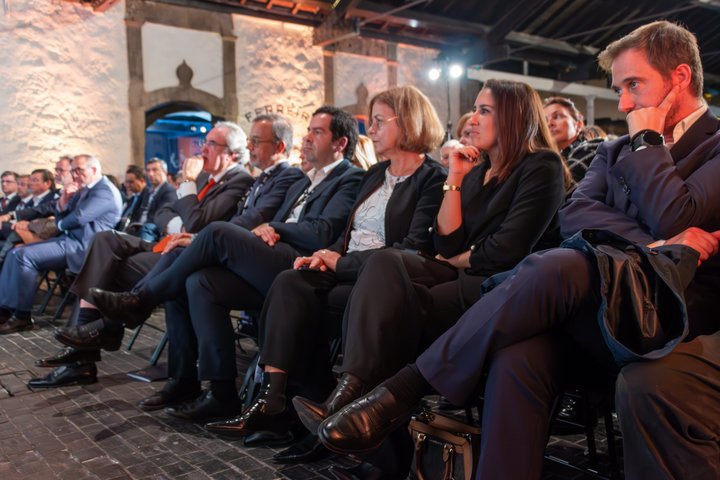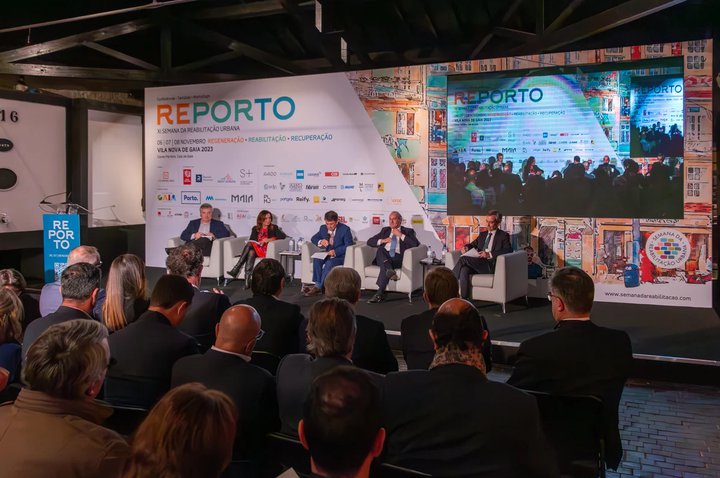Porto's Urban Rehabilitation Week was held for the first time in Vila Nova de Gaia, at Caves Ferreira, between 6 and 8 November. It was the busiest edition ever, with around 2,000 participants, responsible for 9,500 registrations at the event's various sessions.
After a speech by the Minister of Housing, Marina Gonçalves, at the event's opening session, a round table debate followed, attended by the mayors of Vila Nova de Gaia, Matosinhos and Maia, as well as the deputy mayor of Porto. Crucial topics were discussed, ranging from the challenges of housing and territorial cohesion to local accommodation and current legislation.
In the first instance, Eduardo Vítor Rodrigues, Mayor of Vila Nova de Gaia, emphasised that in Gaia "we are facing, like other municipalities, a problem of housing supply". He recalled that last year, Vila Nova de Gaia was the municipality with the highest number of licences, "but we also have 2,000 families waiting, because the licences that are requested are not all geared to demand, and demand is dissonant with supply".
Faced with this problem of housing, or housing, as he put it, the only viable solution is a collaborative approach between the public and private sectors and that "this partnership cannot be seen in a dogmatic way". In Gaia, "what we did was set up a public tender procedure to launch this challenge to the market: we have the biggest financial package ever, nationally and in Gaia, for housing under the 1st Right. Now we're counting on your participation, in the knowledge that you may get a slightly lower return due to market prices being a little higher than the INE indicators show". Nevertheless, "we encourage you to participate, because there is a social responsibility involved. In the two calls for proposals we launched, we received proposals worth 80 million euros."
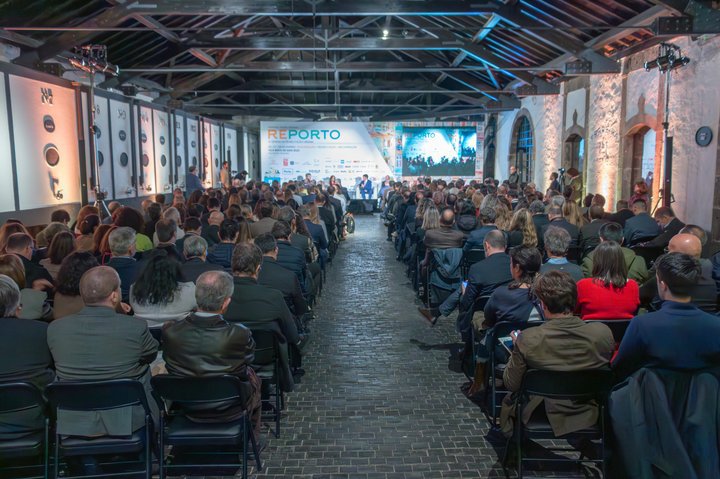
Porto's Urban Rehabilitation Week is organized by Vida Imobiliária, part of Grupo Iberinmo
Porto concentrates its efforts on the middle class
In the view of Filipe Araújo, Deputy Mayor of Porto, "there is a problem to solve associated with new dynamics that are being created, very much associated with new concepts of modality that are changing our territory". As a result, "we have to look at solving the housing problem in the light of these new paradigms, without being tied to the territory we had in the past," he explained.
The deputy mayor of Porto also said that "the Municipality of Porto has much more social housing than neighbouring municipalities, so we don't intend to invest in this area any time soon. Our concern centres on the middle class, where affordable housing plays a crucial role. This is an objective that we want and are actively working towards". He went on to say that "we want, through clear affordable housing instruments, to stimulate construction in the centre or in peripheral areas, providing benefits for those who choose to build affordable housing".
Confidence in investment
"The country has decided to invest heavily in housing to speed up housing mechanisms. While it is true that the country has allocated a large part of these resources to housing, it is also true that it has delegated the exercise of policies to the local authorities and that we were the ones to make the most rigorous diagnoses," emphasised Luísa Salgueiro, Mayor of Matosinhos, adding that the More Housing package "has enabled a wider range of tools for us to be able to make political decisions".
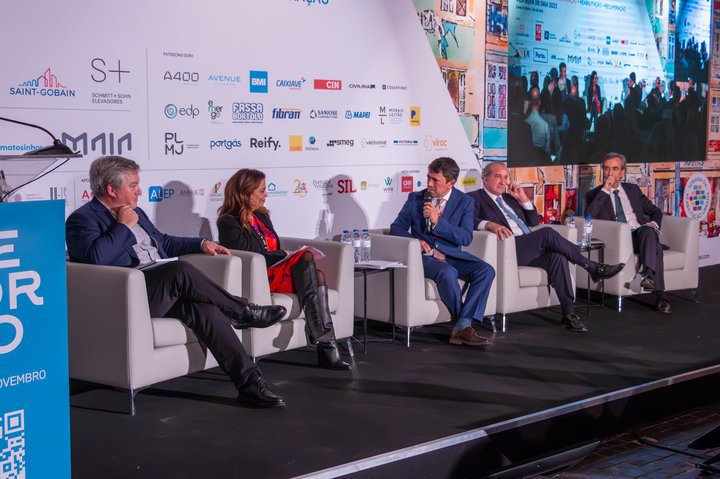
However, "we really need to have this relationship of trust in investment, legislative change cannot jeopardise this trust and this sometimes happens", and "good policy doesn't always depend more on legislation, but on the ability to implement and understand how legislation impacts on municipalities and people".
The Mayor of Matosinhos also emphasised that "we want to make use of all the tools and mechanisms available to bring people closer together and the Local Housing Strategies are doing just that: creating a range of responses". As for urban regeneration, he emphasised that the country "doesn't need new housing as much as it needs regeneration. It's very important to build new, but we have to focus on rehabilitation and regeneration".
Greater Porto brand amplifies Porto's identity
António Silva Tiago, Mayor of Maia, emphasised the Greater Porto brand, which amplifies Porto's identity: "Porto is not just a dot, but a comma Porto, Matosinhos, Gaia and Maia".
He emphasised Porto's "good base", where the buildings that exist, in terms of affordable housing, "are good buildings - these rehabilitations have had good results". In Maia, "we demand quality from anyone, both in social and private housing, we impose minimum standards so that families who move to Maia have a vision of trust".
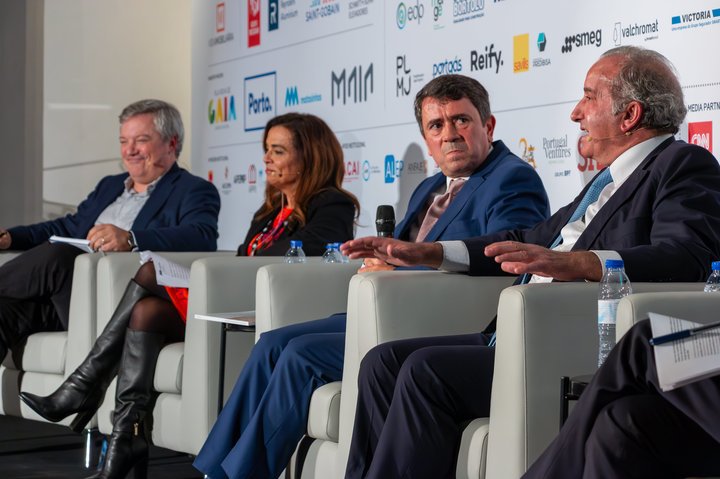
Currently, "we are living in different times, there are new realities, there are single-parent families and smaller families, which we want to be bigger. We also have the employment factor, human resources that cause migration and, therefore, all of this has to be balanced in our decisions and there have to be multiple solutions to resolve these problems."
Mais Habitação measures for local accommodation
With regard to the measures imposed by the government on local accommodation, Filipe Araújo said that "it's the municipalities who know the territory best. When a path had been taken in which municipalities were given the tools to regulate and define what they wanted from local accommodation, there was a step backwards in that direction. This Monday, at a town hall meeting, we revoked our local accommodation regulations."
- "The legislation bans LA in coastal areas all over the country, it maps everything equally when not everything is equal. Our study showed that we had more central areas of the city under pressure from LA, and we had to intervene there. From another point of view, when we looked at other parishes in the city, there was no such pressure"
When asked whether or not the municipality was capable of regulating the activity, balancing this supply of housing vs local accommodation, the vice-president of the Porto municipality revealed that "we had some figures that showed that the regulation was having an effect. Of the more than 200 applications that had been submitted for the historic centre, only 40 had been accepted".
On the other hand, Luísa Salgueiro emphasised that "in the case of municipalities on the coast, it is compulsory to draw up municipal housing charters so that local accommodation can be approved. We are responsible for approving the municipal housing licences. I'm speeding things up so that in December I can take the municipality's housing charter to the municipal assembly to be able to approve local accommodation."
The mayor of Matosinhos added that "the law does not prevent us from authorising new accommodation, on the contrary, it states that if there is a high demand for housing in a given area, the replacement of housing with local accommodation is not allowed, unless it is provided for in the municipal charter".
